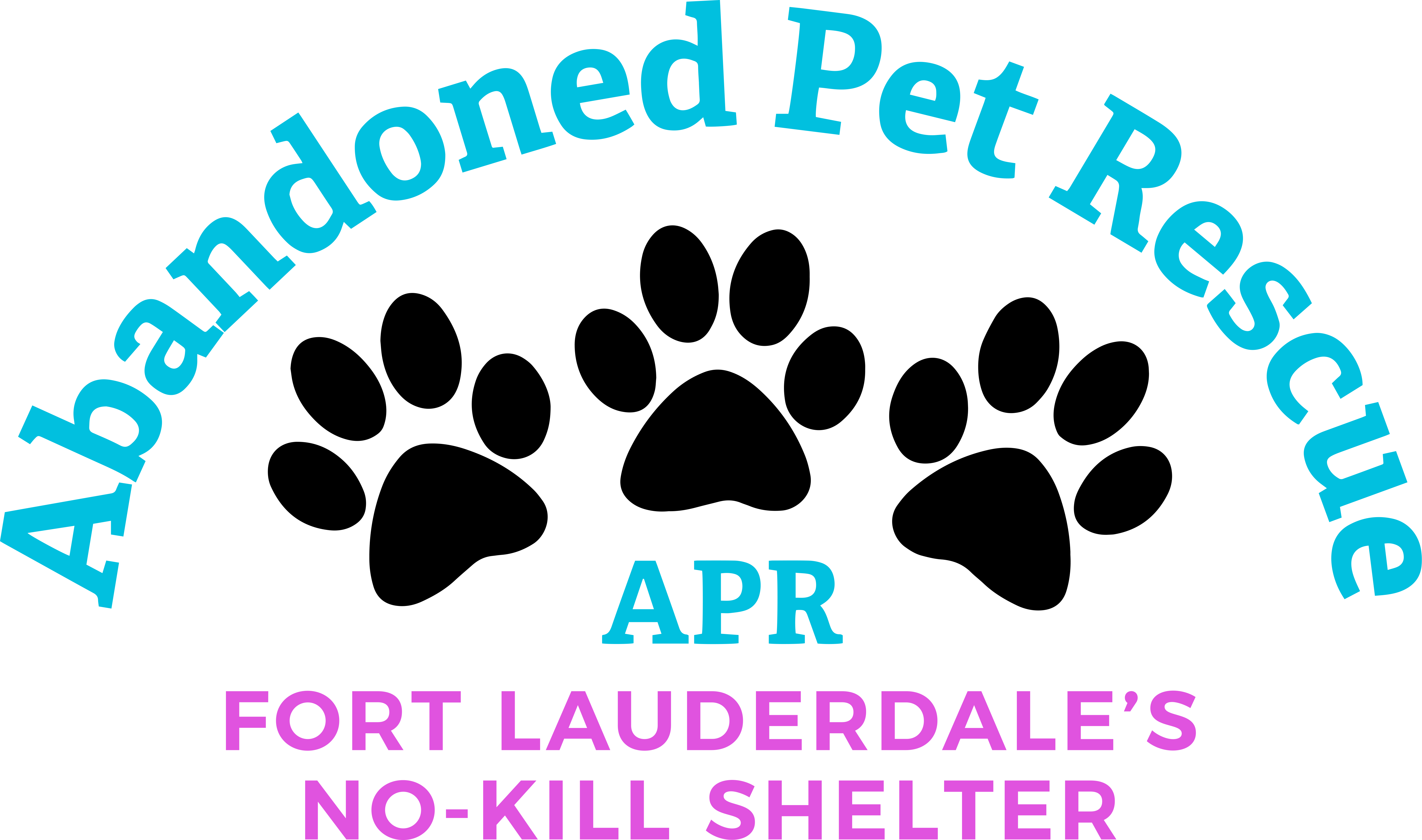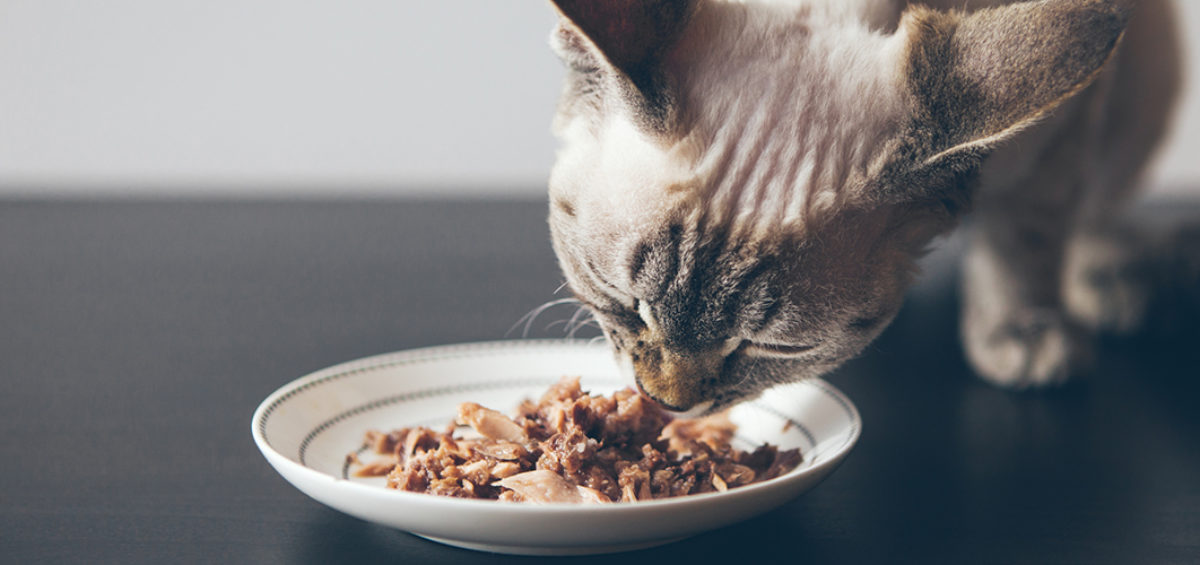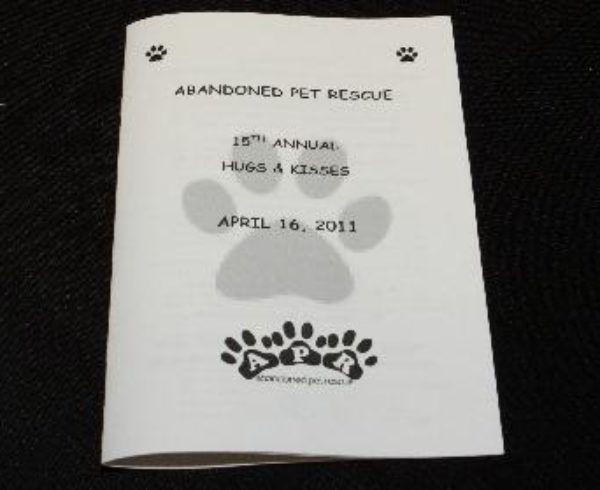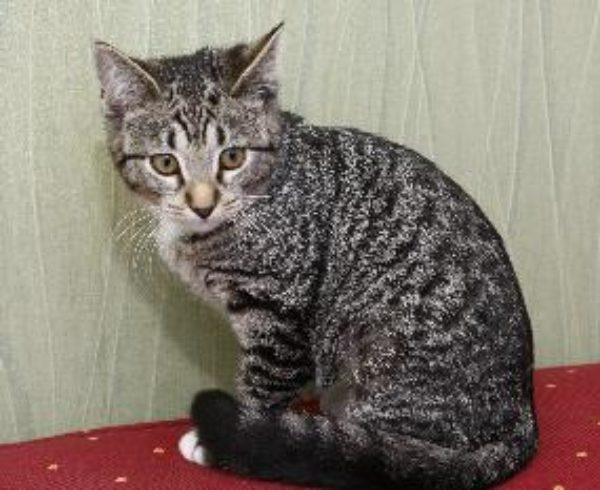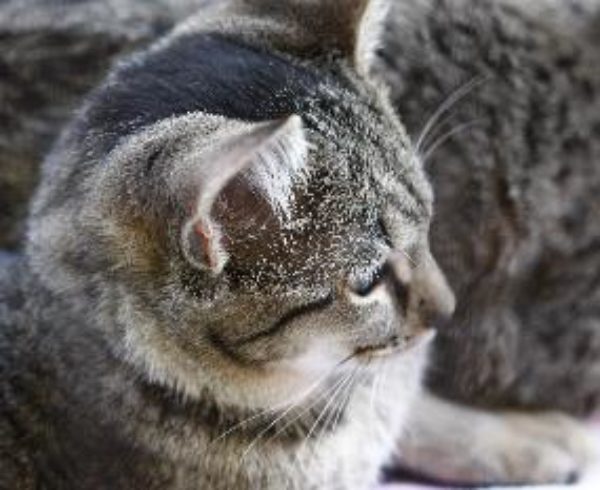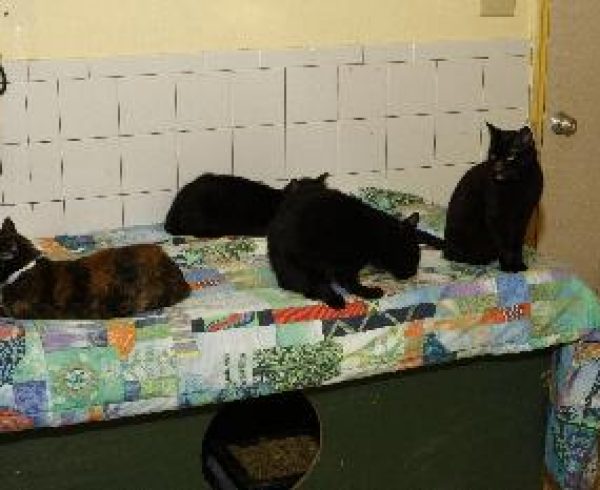My doctor told me that he wants to see me gain at last five pounds before my next visit, so I was a bad girl and bought myself some double-chocolate brownies at Publix this morning. I put one on a plate and set it next to my coffee on my bedstand and went out to check the mail. I returned to find my Jenna helping herself to the cream cheese icing. I wondered if this much sugar might be harmful, so I hit the web to do some research on what cats should not eat. I was amazed at what I found and want to share it with you. Here’s the rundown:
TUNA. Believe it or not, cats can actually become addicted to tuna. This is true whether it’s canned especially for cats or the stuff packed by “Charlie” for human consumption. An occasional treat of tuna won’t hurt now and again, but a steady diet of it can lead to malnutrition because it doesn’t have all the nutrients cats need. It can also cause mercury poisoning.
MILK and other DAIRY PRODUCTS. Feeding the cat a saucer of cream or milk is an old wives tale (we old wives really catch Hell, don’t we?). So, what could be wrong with giving your cat a saucer of milk or a piece of cheese? The fact is that most cats are lactose intolerant. Their digestive system can’t process dairy foods, and the result can be digestive upset with diarrhea.
GRAPES and RAISINS. Grapes and raisins have often been used as treats for pets, but it’s not a good idea. Although it has not been discovered why, grapes and raisins can cause kidney failure in cats. Even a small amount can make a cat ill. Repeated vomiting and hyperactivity are early signs. Although some cats show no ill effects, it’s best not to give your cat any grapes and to keep grapes and raisins off countertops and other places accessible to your cat.
CAFFEINE. Caffeine in large enough quantities can be fatal for a cat, and there is no antidote. Symptoms of caffeine poisoning include restlessness, rapid breathing, heart palpitations, and muscle tremors. In addition to tea and coffee caffeine can be found in cocoa, chocolate, colas, and stimulant drinks such as Red Bull. It’s also in some cold medicines and painkillers. Be careful not to allow your cat to taste-test your morning cup of brew.
CHOCOLATE. Chocolate can be lethal for cats. Fortunately, most cats do not like the taste of chocolate, but there are always the exceptions. The toxic agent in chocolate is theobromine. It’s in all kinds of chocolate, even white chocolate. The most dangerous kinds, though, are dark chocolate and unsweetened baking chocolate. Eating chocolate can cause abnormal heart rhythm, tremors, seizures, and death. I don’t think my Jenna made it to the brownie part, but I’m keeping my eye on her.
FAT TRIMMINGS and BONES. This one really surprised me. I have never given my cats bones, but I have given them chicken skin on occasion. Turns out that both fat and bones may be dangerous for cats. Fat, both cooked and uncooked, can cause intestinal upset, with vomiting and diarrhea. And a cat can choke on a bone. Bones can also splinter and cause an obstruction or cut the inside of your cat’s digestive system.
RAW EGGS. There are two problems with giving your cat raw eggs. The first is the possibility of food poisoning from bacteria like salmonella or E. coli. The second is a rare problem in which a protein in raw egg whites, called avidin, could interfere with the absorption of the B vitamin biotin. This can cause skin problems as well as problems with your cat’s coat.
RAW MEAT and FISH. Raw meat and fish, like raw eggs, can contain bacteria that cause food poisoning. In addition, an enzyme in raw fish destroys thiamine, which is an essential B vitamin for your cat. A lack of thiamine can cause serious neurological problems and lead to convulsions and coma.
LIVER. This was another surprise for me. Small amounts of liver are acceptable but eating too much liver can cause vitamin A toxicity. This is a serious condition that can affect your cat’s bones. Symptoms include deformed bones, bone growths on the elbows and spine, and osteoporosis. Vitamin A toxicity can also cause death. Incidentally, too much Vitamin A is also toxic to humans.
ONIONS, GARLIC and CHIVES. Onion in all forms — powdered, raw, cooked, or dehydrated — can break down a cat’s red blood cells, leading to anemia. That’s true even for the onion powder that’s found in some baby foods. An occasional small dose probably won’t hurt but eating a large quantity once or eating smaller amounts regularly can cause onion poisoning. Along with onions, garlic and chives can cause gastrointestinal upset. Also keep the spices, especially in the pepper family away from your kitty.
ALCOHOL. No, I don’t expect you to come home from work and share a beer, martini or margarita with your cat, but let’s get serious. Cats are curious critters, and like kids, have a tendency to taste-test a lot of things they shouldn’t. Beer, liquor, wine, foods containing alcohol — none of it is good for your cat. That’s because alcohol has the same effect on a cat’s liver and brain that it has on humans, but it takes far less to do its damage. Just two teaspoons of whisky can cause a coma in a 5-pound cat, and one more teaspoon could kill it. The higher the proof, the worse the symptoms.
OTC MEDICATIONS. This could probably go without saying, but you should never treat any of your cat’s symptoms with OTC compounds intended for humans. Since not everyone out there is a rocket scientist, I thought it might be prudent to mention it in passing.
This is Allie wishing all of you a happy and prosperous new year and lots of fur-lined love.


